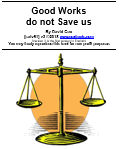Keathley Bibliology
Keathley Bibliology
By David Cox
This bibliology is written Keathley, a Dallas Theological Seminary Graduate and a pastor for many years. 10 chapters in this work. He looks at Bibliology from a Fundamentalist perspective.
Author Biography
J. Hampton Keathley III, Th.M. was a 1966 graduate of Dallas Theological Seminary and a former pastor of 28 years. In August of 2001 he was diagnosed with lung cancer and on August 29th, 2002 he went home to be with the Lord.
Hampton wrote many articles for the Biblical Studies Foundation and on occasion taught New Testament Greek at Moody Bible Institute, Northwest Extension for External Studies in Spokane, Washington. (bible.org)
Contents of Keathley Bibliology
Introduction
1. Terms Used for the Bible
2. Attitudes or Viewpoints Toward the Bible
3. The Bible: The Written Word of God
4. The Bible: God’s Special Revelation
5. The Bible: The Inspired Revelation of God
6. The Bible: The Inerrant Word of God
7. The Bible: The Holy Canon of Scripture
8. The Bible: < Understanding Its Message
9. The Bible: Alive and Powerful (Animation)
10. Concluding Thoughts
Keathley Bibliology
From the foreword of Keathley Bibliology
Of all the doctrines of the Bible, none is more mportant or foundational than bibliology, the doctrine of the Bible. The reason for this is simple. The Bible’s witness to itself is that it is God’s Word and thus, our authority for belief and practice. Our understanding of God, of man, and of the salvation He offers mankind in Christ is all very much dependent on how much men believe and know the Bible.
God has revealed Himself in a number of ways: in creation, in history, in miracles, visions given directly to the prophets. But primarily, God has revealed Himself in the person of Christ, the Living Word, and in the Bible, the Written Word. But what we learn about the person and work of Jesus Christ, we learn from the Bible in both the Old and New Testaments. The majority of that which we can know about God comes from the Bible.
If men do not hold the Bible in high esteem as the inspired and inerrant Word of God and fail to handle it properly (interpretation and application), then they will turn to other sources as their authority (human reason alone, science, tradition, the church, mysticism, experiences) for what they believe and practice. Consequently, if men do not hold to the Scripture as the complete, sufficient, clear, authoritative, and adequate rule of faith, they will reject the Bible’s truth either completely or partly and in the process miss its message of salvation and deliverance from sin, which it offers them in the person of Jesus Christ.
MORE FROM THE FOREWORD OF KEATHLEY BIBLIOLOGY
For example, neoorthodoxy’s basis of authority is Christ, which sounds good until you begin to investigate how substantial their idea really is. The Barthian (another name for neoorthodoxy) says that his authority is Christ and not the Bible, for that is a fallible book. But since it is a book full of errors (and if it is our only source of information about Christ), then how do we know that Christ has any authority unless we arbitrarily assign Him authority on the basis of our faith or of our reasoning? … 1
Our view, approach, and attitude toward the Bible is foundational. If our view of the Bible is inadequate we will naturally handle the Bible accordingly. If I do not think it is God-breathed, I won’t think it is profitable and vital. If I think it might contain errors, or that only some of it is inspired, say the thoughts, not the words, then I am left with a dilemma and I must approach it much like a cafeteria line, choosing according to my own likes or bias. What do I believe and not believe?
If it is wrong in some places, then how can I be sure what it says about Jesus is true? On the other hand, if I believe it is God’s infallible and inerrant Word, as the evidence supports, then I should accept it all and study it carefully. An unfortunate element very obvious today within the evangelical community is that most who call themselves evangelicals will theoretically, at least, claim allegiance to the Bible as the all-sufficient and authoritative rule of faith, but in practice, many are raising other sources on a level with or even above the Scripture as their authority for what they believe and practice.




 Anthology on the Antichrist
Anthology on the Antichrist
 What Destroys more pastors than anything else? Stress!
What Destroys more pastors than anything else? Stress!